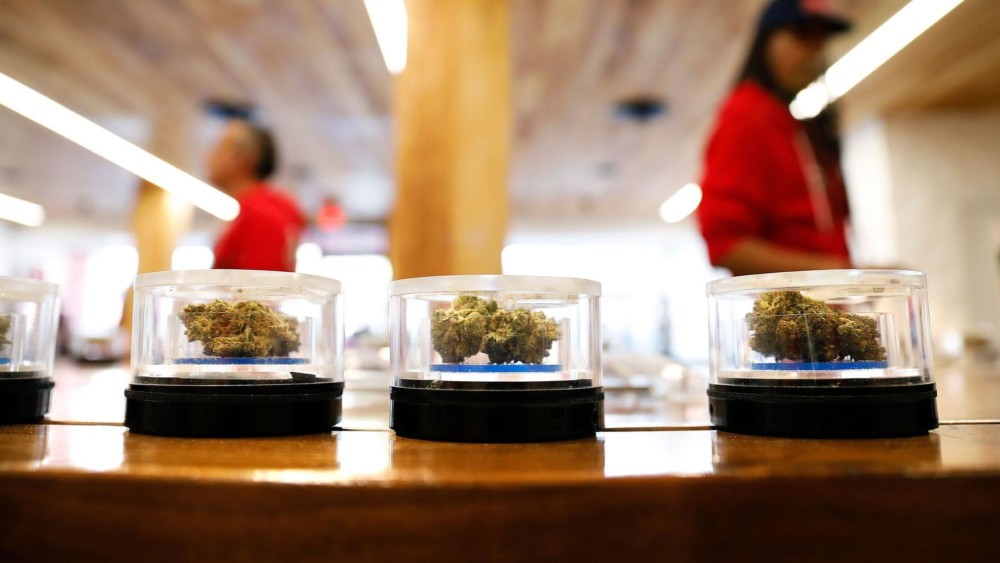By Samantha Masunaga
Los Angeles Times
WWR Article Summary (tl;dr) Does the legalization of recreational marijuana sales change drug testing policies for job applicants? NO…read on for more answers to questions surrounding the do’s and do-NOTS surrounding recreational marijuana.
Los Angeles Times
Legal sales of recreational marijuana began Monday in California, but big changes in the workplace or in public aren’t expected.
Michelle Lee Flores, partner at national law firm Cozen O’Connor who specializes in labor and employment law, said that while employees may think the new law could give them a pass, that’s not necessarily the case.
“I think there are a lot of employees that think that now it’s a get out of jail free card or ‘Now I have a right and therefore you cannot hinder that in any way’ and that’s just not true,” she said. “You have a right to buy alcohol, but we all understand we don’t come to work drunk.”
Does the legalization of recreational marijuana sales change drug testing policies for job applicants?
The new law “specifically does not change the legal status between employers and employees when it comes to drug testing and employment,” said Tamar Todd, legal affairs director for Drug Policy Alliance, a national drug law reform group that supported the 2016 passage of Proposition 64, which legalized the sale of recreational marijuana in California.
“You can still be drug-tested, and you could still be fired by your employer,” she said.
What should employers do now in terms of employee handbooks and company rules?
Flores said employers can still enforce so-called zero-tolerance drug policies.
“Those zero- tolerance policies are about safety in the workplace,” she said. “That’s a real issue, so we want to remember that simply because California law says it’s legal for recreational purposes doesn’t mean that safety goes out the window.”
However, she said employers should be mindful of employees who use medical marijuana.
“For some, they may be using cannabis for medicinal purposes and if so, then we need to be mindful of the Americans with Disabilities Act and the California component of that,” Flores said. “My first thought in that regard is to say, ‘Are you taking this for a medical reason and is there a legal alternative under the federal regime?'”
“With the exception of the medicinal use, think of it as you would with alcohol,” she said. “‘We don’t want you to come to work impaired.'”
Could any legal issues arise by asking employees if they’re using marijuana for medical purposes?
In California, Flores said employers should preface that question with a disclaimer, “Do not tell me what your condition is.”
“You don’t want to get into a situation where you ring the bell and then someone feels that they’ve been discriminated against because you know what their condition is,” she said. “You’re only going to ask that question if someone has a hit for cannabis on a post-offer, pre- employment, and you’re going to make it clear that you don’t want to know what that condition is.”
Are there certain industries that are more likely to enforce zero-tolerance policies for marijuana?
Safety-sensitive industries that work with heavy machinery, such as construction or manufacturing, may be more likely to uphold these policies, Flores said.
Are many companies changing company policies?
Flores said many of the employers she knows are keeping their status quo on marijuana usage.
“The bigger concern is managing the either lack of knowledge or misconception or impression that now it’s a free-for-all,” she said.
Can you transport marijuana in your car?
Drivers can have marijuana in their vehicles, but it must be in a container in the trunk. Driving under the influence is still illegal and consumption in the vehicle is not allowed.
Can you bring marijuana to sporting events at venues that have explicitly prohibited illegal drugs in the past?
Todd of Drug Policy Alliance said the answer will likely depend on the venue itself. Proposition 64 prohibits public consumption of marijuana, which would include sporting events, though businesses can get licenses for on-site consumption, she said. Businesses that allow on-site marijuana consumption could not also allow the consumption of alcohol or tobacco. That means you can’t smoke it in a bar.
Private arenas can prohibit possession of marijuana in their own rules. For example, a Staples Center spokeswoman said cannabis and use of the drug is prohibited inside the venue.
Does the Justice Department’s decision to rescind an Obama administration policy that prevented federal prosecutors from targeting marijuana businesses operating legally under state laws change anything?
buy valtrex Canada https://langleyrx.com/valtrex.html no prescription
Not really, said Robert Mikos, a professor at Vanderbilt University Law School who studies federal, state and local marijuana laws and enforcement policies.
“By rescinding these, it looks like the attorney general is changing course, but it’s important to note they didn’t say that he wanted local U.S. attorneys to go out and crack down on the industry,” he said. “He’s left it up to the discretion of local U.S. attorneys, and there are some reasons to think they’ll just stay the course.”
Mikos said the federal government has limited resources for this kind of enforcement and that going after the recreational marijuana industry would require pulling resources away from other tasks, such as fighting the opioid epidemic.
However, Todd of Drug Policy Alliance said removing this policy “creates a lot of uncertainty” and represents a “direct threat to access.”














































































































































































































































































































































































